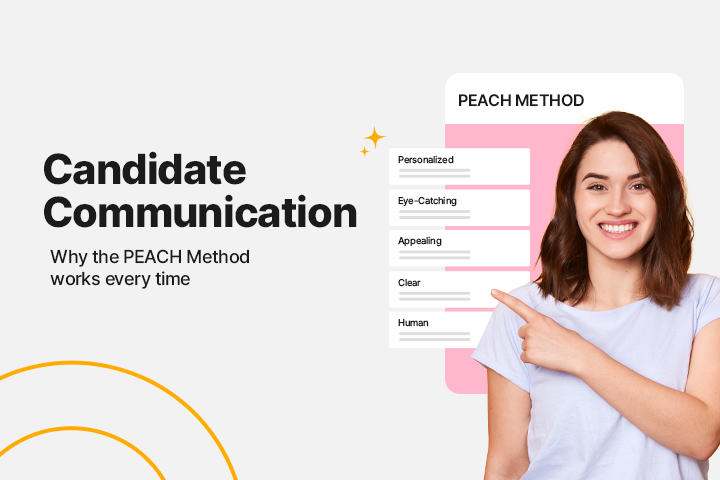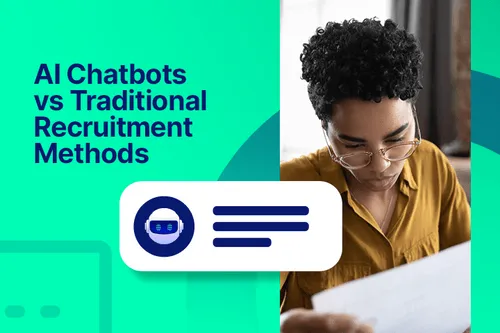- Candidate screening helps prevent costly mis-hires by filtering unqualified applicants early.
- Modern tools like ATS and AI make screening faster, smarter, and more accurate.
- Effective screening balances skills, behavior, and cultural fit for long-term success.
Candidate screening is one of the most important stages in the hiring process. It helps employers filter through applicants, identify the best-fit talent, and avoid costly mis-hires. In 2026, with the rise of AI-powered recruitment tools, candidate screening has become faster, smarter, and more accurate, but the fundamentals remain the same: assessing whether a candidate has the skills, experience, and cultural fit to succeed in the role.
What is Candidate Screening?
Candidate screening is the process of evaluating job applicants to determine whether they meet the requirements of a role. It usually includes:
- Reviewing resumes and cover letters.
- Assessing technical skills and knowledge.
- Conducting behavioral and situational interviews.
- Checking cultural fit and alignment with company values.
- Running background and reference checks.
Screening ensures employers save time and resources by focusing only on qualified candidates, while also providing a fair and structured way to compare applicants.
Suggested: Learn effective employee retention strategies by Qureos.
Why Candidate Screening Matters
Bad hires are expensive. Studies in 2026 show that a poor hiring decision can cost companies up to 30% of an employee’s first-year earnings (SHRM). Effective screening helps avoid these losses by:
- Filtering out unqualified candidates early.
- Identifying top performers who can grow with the organization.
- Reducing turnover by hiring for both skills and cultural alignment.
- Saving recruiters and hiring managers hours of manual review.
With competition for top talent at an all-time high, screening isn’t just a step in the process — it’s the foundation of smart hiring.
Modern Candidate Screening Tools
Technology now plays a central role in screening:
- Applicant Tracking Systems (ATS):
Automatically scan resumes for keywords, skills, and relevant experience.
- AI-powered pre-screening tools:
Evaluate resumes, score candidates, and even recommend top matches.
- Pre-employment assessments:
Test technical ability, problem-solving, and personality traits before interviews.
- Video interview platforms:
Use AI to analyze communication style and consistency across responses.
By automating repetitive tasks, recruiters can spend more time engaging with high-potential candidates instead of sifting through unqualified applications.
Suggested: Explore Qureos’ job hiring platform
How to Screen a Candidate: Step-by-Step Process
1. Pre-Screening
This stage filters out candidates who don’t meet the basic requirements.
- Clear job description:
A precise job description ensures you attract the right candidates. (Try Qureos’ Job Description Generator to create tailored postings.)
- Phone screening:
A 10–15 minute call helps confirm availability, interest, and basic qualifications.
- Questionnaires & assessments:
Quick online forms can identify deal-breakers early.
2. Resume and Cover Letter Screening
Focus on alignment with the role:
- Red flags:
Frequent job-hopping, unexplained gaps, or sloppy formatting.
- Relevant achievements:
Look for measurable outcomes (“Increased sales by 20%” vs. “Worked in sales”).
- Transferable skills:
Don’t ignore candidates from different industries if their skills align.
Also assess for attention to detail, a well-crafted resume often signals professionalism.
3. Social Media and Online Presence
Candidates’ digital footprints can reveal professionalism, interests, and communication style.
- How to review:
Scan LinkedIn for endorsements and career consistency; check other platforms for professionalism.
- Compliance note:
Stay within legal boundaries, avoid bias or discrimination based on protected characteristics.
Also Read: How Can You Automate Interviewing Candidates
4. Skills and Technical Knowledge
Practical evaluations ensure candidates can do the job:
- Skills tests:
Coding challenges, writing assignments, or case studies depending on the role.
- Technical interviews:
Assess hands-on knowledge, e.g., debugging for developers or campaign strategy for marketers.
- Transferable skills:
A sales professional applying for marketing may bring valuable negotiation and communication expertise.
5. Behavioral Interviews
Behavioral interviews help predict future performance by looking at past behavior.
- Ask open-ended questions:
Instead of “Do you handle pressure well?” ask, “Tell me about a time you had to meet a tight deadline.”
- Evaluate with STAR:
Look for candidates who answer using Situation, Task, Action, Result.
- Focus areas:
Collaboration, conflict resolution, problem-solving, adaptability.
Suggested: 300+ Interview Questions Template For Each Job Title
6. Cultural Fit
Skills win interviews, but culture fit drives retention.
- Define your culture:
Be clear on values (innovation, teamwork, accountability).
- Ask situational questions:
“How do you handle failure?” “How do you contribute to team success?”
- Team involvement:
Involve multiple interviewers to assess fit from different perspectives.
7. Background Checks
Final validation before making an offer.
- Types of checks:
Employment history, education verification, criminal records, credit history (where relevant).
- Handling issues:
Consider severity and job relevance. For example, a past minor offense may not disqualify a candidate for a marketing role but could for a finance position.
Making the Final Decision
Once screening is complete:
- Weigh technical skills against soft skills and cultural fit.
- Compare candidates using structured scorecards.
- Communicate clearly with both selected and rejected candidates.
A timely, respectful rejection email can boost your employer brand and leave candidates with a positive impression, even if they weren’t hired.
FAQs on Candidate Screening
1. What is the most important factor in candidate screening?
Job-related skills and relevant experience, combined with cultural alignment.
2. How do you assess cultural fit?
By asking behavioral questions, involving team members, and comparing candidate values with company values.
3. Can employers check criminal history?
Yes, depending on local laws and the job role. Always ensure compliance with privacy and labor regulations.
4. What’s the best way to run behavioral interviews?
Ask open-ended, situational questions (e.g., “Tell me about a time when you resolved a conflict at work”).
5. How should you communicate with rejected candidates?
Send a timely, respectful email or call. Thank them for applying, and if possible, provide constructive feedback.




